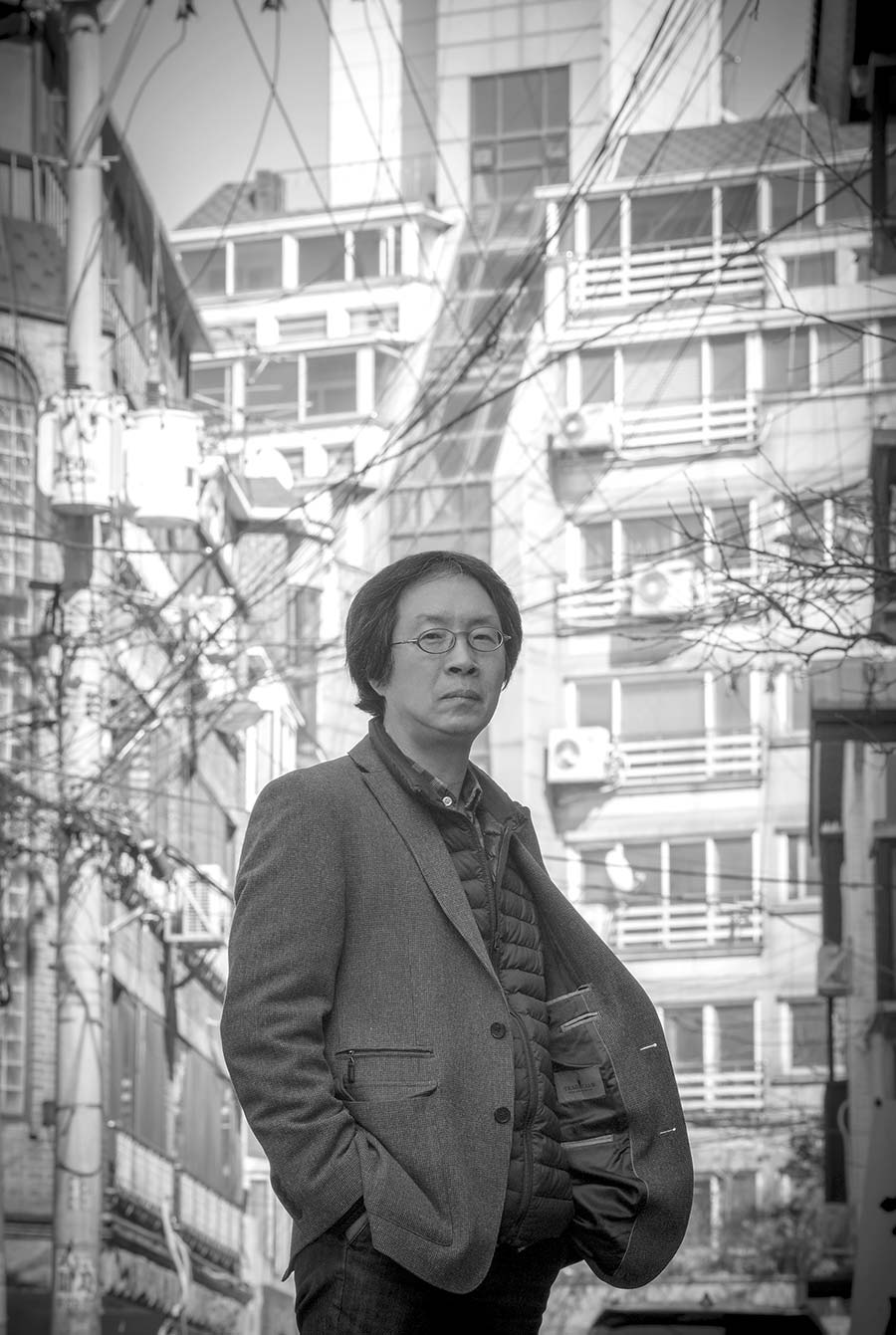
———What is the direction for acting to Lee Jun-dong?
Of the films appeared, only “A Quiet Dream“ needed direction. There were many appearance scenes, and I had to discuss with the director about the character of Yeri's father I played. And the director said, "Don't try to do anything." There was a scene of getting down from the slope on a wheelchair. What did this guy really think about going up on the slopes? To commit suicide? Or did someone push him? I was worried about his mental condition and motives. In response, the director only said "just try." I think the director wanted to draw everything that could be felt at the shooting site, including space and people.
———You've always appeared in other films.
I have become like "Zhang Lu’s exclusive actor," and when an offer comes from other works, Zhang gets angry (laughs). If I refuse to appear, the producer visits me the day before shooting. It is like the director bullies the producer. So I cannot help thinking of the producer and going to the scene. However, I decided not to appear in “Ode to the Goose". It looks like I'm freaking out wanting to appear in a movie .... Not being a real actor, I was ashamed and wanted to escape. The director uses me like a talisman, saying he feels uneasy or an accident occurs in the movie if I don't appear(laughs).
———What kind of person is Zhang Lu from your perspective, Mr. Lee Jun-dong?
Director Zhang has the sensibility of old people which is no longer in Korea. For example, he tells old men’s gags very interesting and fun. I feel Korea's unique fading emotions in him. I like it. And he likes to drink every day, just like me. We always talk while drinking, and there is no drinking friend beyond him. What such a director is obsessed with is continuing the movie-like question, "Is it okay to live this way?" There are a few directors like him of the present age.
———Lastly, would you like to comment on “Gyeongju”?
I think “Gyeongju” is a work to be accepted to Japanese audiences. I cannot say exactly the reason for this, but I feel that the director's space, people, and productions with twisted time are preferred. It's also a familiar genre to Japanese people, and I think you will like the director's work.
Written by: Kaori Oda(小田 香)
<Profile>
Lee Jun Dong
Born in Daegu In 1957, as the 4th of 6 brothers. In his twenties, he was enthusiastic about theater and working on directing. In 1993, he was in charge of production and management for the director Pak Kwang-su’s “To the Starry Island“ written and co-directed by his brother Lee Chang-dong. In 2000, he was opposed by his brother, but he entered the film industry closing the company he had run. He also served as a producer and also appeared as a minor role in the "Oasis" in 2002. In addition to directed by Lee Chang Dong, he was also involved in “My Mother, the Mermaid " (2004), " Never Forever " (2007), " A Brand New Life " (2009) and "The Cat" (2011), etc. He is also a representative of two movie production companies, "Now Film" and "Pinehouse Film". His latest production work is “Birtday” starring Sol Kyung-Gu and Jeong Tu-Yeong.